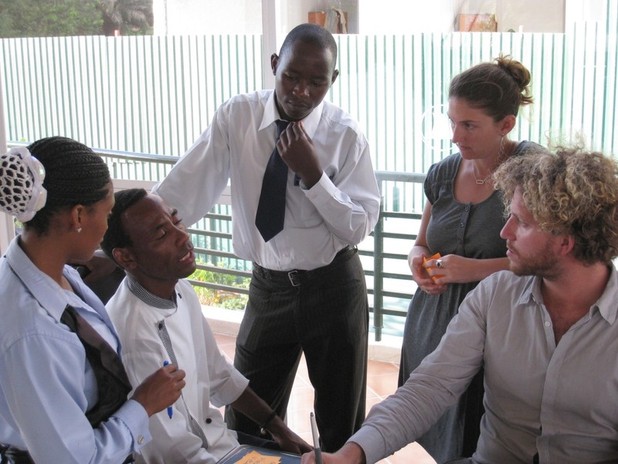March 02, 2012
The IDEO.org cookstoves team spends its last day in Mwanza, Tanzania camped out in the hotel restaurant synthesizing what they've learned so far and figuring out where it still needs to probe in order to fully understand Tanzanian cookstove users.
During our full day of synthesis here in Mwana, several insights started to emerge, including:
- Fuel is the major driver of cookstove adoption, not the stove itself.
- There are tradeoffs between efficiency and durability that customers are currently making and there seems to be little differentiation around cookstove features.
- People are constantly changing their cooking patterns, behaviors and tools based upon the circumstances. Variables that we observed include: weather, number of people being cooked for, time of year, amount of money available, and what's being cooked. Therefore, there is no one stove for every occasion.
As we head to Dar es Salaam, and despite a lot of progress that we've made into understanding the cookstove market in Mwanza, we have several research questions that require further exploration. These areas include:
- We need clarity around the prices of various fuel options. We still can’t determine exactly what the differences in fuel costs are between charcoal, wood and gas, the three most common fuel types in Tanzania. Even more problematic is figuring out how to compare, for example, three sticks of wood with one tin of charcoal. Which burns longer? Are there different foods that can be cooked with one type of fuel as opposed to another? What is the financial impact of choosing wood vs. charcoal?
- We need a better understanding of food culture. Our current hypothesis is that Tanzanian culture does not put a huge priority on food culture and eating. Instead, food is a means of being strong and having energy to live one’s life. In short, do Tanzanian’s live to eat or eat to live? We want to find out more about the meaning of food in Tanzanian culture.
- We need to better understand the financial situation of the average cookstove customer. We would really like more information on how people spend money, make financial decisions within the household, and how living costs break down on a daily, weekly or monthly basis.
To dig into some of these issues, we’ve developed laminated discussion cards (with the help of the hotel staff) to push our conversations further and get into some of the nuances of these issues. Our plan is that these discussion cards can be used like the board game Clue, allowing us to pair “beans” with “charcoal stove” in the “rainy season," all as a means of better understanding the market for cookstoves in Tanzania.







